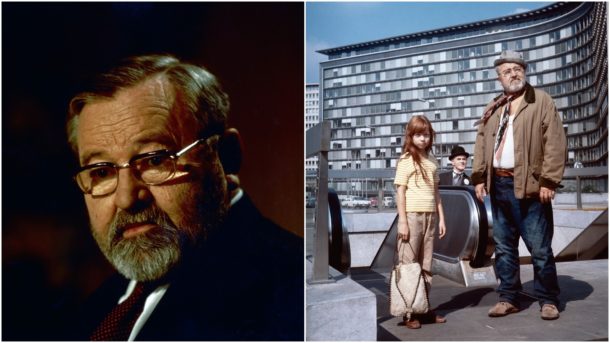Jan Werich. (Photo: Profimedia)
When in September 1938 Nazi Germany occupied the Czechoslovak border. Jiří Voskovec and Jan Werich had spoken out against the Third Reich for some time. They rely on it, for example, in their plays Těžká Barbora and Pěst na oko. Thanks to their work, they came under German surveillance, and so on January 9, 1939, Werich and the music composer Jaroslav Ježek emigrated to the US. If they didn’t escape, then they might end up tragically. They found the Gestapo list uncomfortable. Let’s take a closer look at their story with the Youradio Talk Echoes of the Past podcast.
Problems arose for the Theater of Liberation soon after the occupation of Czechoslovakia. Police reporters noted at the time that the theater served to promote left-wing politics. Already on November 7, 1938, the Regional Office proposed a theater concession. The artists realized the seriousness of the situation and tried to get visas. This is possible only with the help of bribes. The authorities also started to restrict the issuance of passports. During 1937, the authorities issued a total of 48,000 copies, and in January 1939 only 10,000.
Voskovec, Werich and Ježek wanted to travel to the US on an invitation from Lotte Goslarová, a ballad dancer from Hadry. He fled the Nazis to the US before. Jiří Voskovec managed to escape from Czechoslovakia in the fall of 1938. Ježek applied for an extension of his passport on 24 November 1938. Everything went smoothly and the police headquarters had no objections. He must provide other documents, such as a confirmation from the chamber of commerce and commerce, his travel business requirements, a doctor’s opinion on overseas treatment or an approval opinion from corps headquarters. Ježek managed to arrange everything and they allowed him to cross the border by train in Ostrava or fly out of the airport in Ruzyna. Czech music composers also receive a certificate of preservation, which is required to obtain an American visa.
Everything could have been different
Werich also got the green light and the road to the USA seemed open. But the men are far from winning. Planes from Czechoslovakia don’t fly much anymore. The two artists urgently needed to get to Zurich. They managed to do that on January 9th. At the same time, little is missing and everything could be different. Thick fog enveloped the whole trip. The pilot didn’t want to take any risks and wanted to return to Prague during the flight. Werich pressed him and asked him not to do it. The pilot was finally persuaded and the plane landed in Zurich.
Werich and Ježek left their homeland at the last moment. In Czechoslovakia at the time, they faced false accusations. An official from Mabes Polri informed them of this beforehand. He tucked it away in a drawer until January 9th, and thanks to that, the artists made their way to the US in no time.
Jan Werich and Jiří Voskovec returned to Czechoslovakia immediately after the Second World War. But because of the rise of the communist regime, they could not return to political satire. So Voskovec emigrated to the US a second time in 1950. Werich, on the other hand, lived in Prague. Jaroslav Ježek did not live to see the end of the war. He died on January 1, 1942 in New York from chronic kidney disease.

You can listen to the entire Echoes of the Past podcast on Youradio Talk.
Cocktails – another article

“Tv nerd. Passionate food specialist. Travel practitioner. Web guru. Hardcore zombieaholic. Unapologetic music fanatic.”







